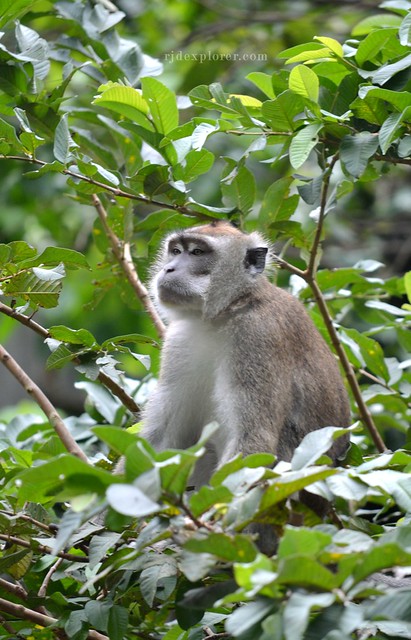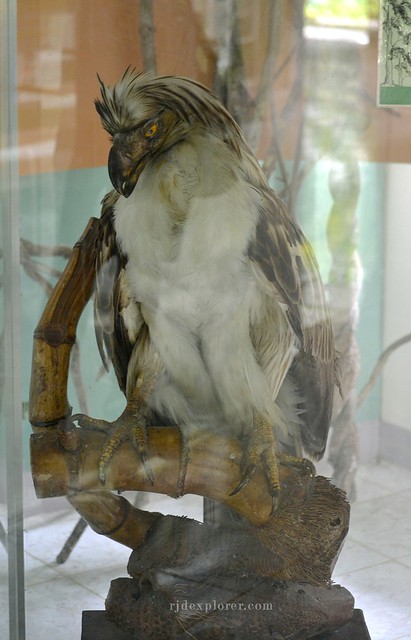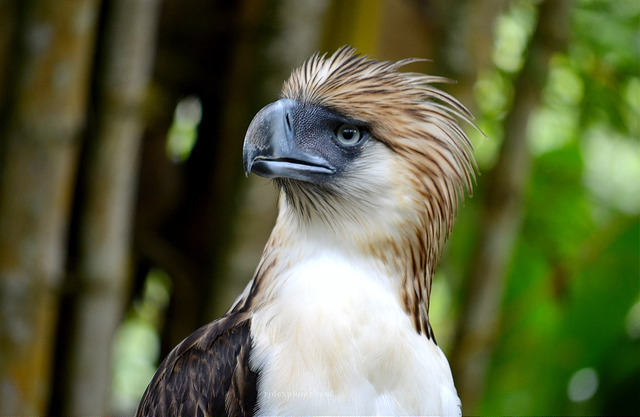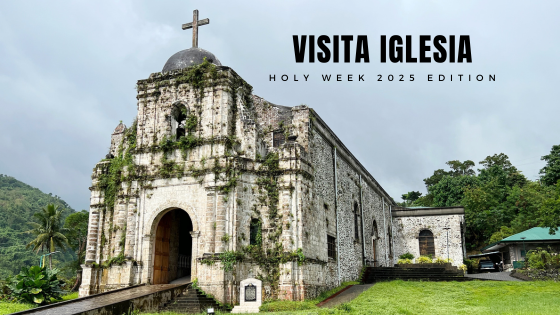Philippine Eagle. One of the topics during elementary that made me fascinated and eager to visit Davao. From that moment, I really wanted to meet the national bird. Even if it took me years, I’m very glad to finally live that childhood dream on my first trip to Davao.

Situated at the foot of the tallest mountain in the country, Philippine Eagle Center is a facility of the Philippine Eagle Foundation to rehabilitate and breed the endangered Philippine Eagle. To adapt to the natural habitat of the birds, the center is perfectly located and simulated a rainforest, just within the Davao City Water District.
Philippine Eagle, or Pithecophaga jefferyi, is critically endangered and endemic in the Philippines, primarily a rainforest raptor. The estimated population is only 500 pairs, they’re solitary and fiercely territorial birds, and are feed on flying lemurs, squirrels, civets, snakes, bats, and monkeys. I also found out that they are the only blue-eyed bird of prey in the world, with their eyes that can see eight times the distance the human eye can.


I was lucky to be toured around by one of the keepers. The volunteer, forgot the name of the beautiful lady, has in-depth knowledge of the background of the birds and detailing all the information of each one. She is actually the keeper for Biasong, a disabled eagle with one of its wings shot before the turnover, and was needed to be amputated.
Aside from Biasong, a prominent eagle on display is Scout Binay while enclosed in cages are Dakila and Maginoo. In total, there are 36 eagles, of which 18 are captive-bred, that are currently being taken care of in the center. The center also has several numbers of White Bellied Sea Eagle, owls, long-tailed macaque, wild pig, and a crocodile.

Since the center is a non-profit organization, they implement the adoption of an eagle, a way for them to continue the rehabilitation and research on the birds that are endemic to our forests. I was able to have a glance on the adoption board where people and organizations adopt and fund their chosen eagle. On the wall are Kim Atienza who adopted Thor, the oldest eagle in the center, and Vice Jejomar Binay who supported Scout Binay. You can also have a chance to rename an eagle if you’re going to adopt one.

“Why is there a need to protect them?” I asked the guide. She told me that the eagle is on the highest level in the food chain of the forest ecosystem and an effective benchmark is assessing the environment’s health. Protecting them is an umbrella way of protecting all life forms that dwell in our Philippine forests.

Other activities that can be done at the center include lectures on conservation breeding, field research, community-based program, captive-breeding techniques, and conservation education program. Contact them prior to your visit if you’re interested in the said topics. They also have keeper talks, where keepers will talk about the bird’s biology; and falconry, where the birds are allowed to take flight.


Long-tailed macaques (left) are being taken care of in the center and not being fed for the eagles. And the taxidermy of Diola (right) found at center’s museum.
After the tour, you can proceed to their mini-museum where you will learn more about the eagles, their location distribution in the country, their profile, and can find some skeletons, largest eggs hatched in the center, feathers, and the taxidermy of Diola, died in January 1994 due to congestive heart failure.

The visit to the Philippine Eagle Center was very informative that it was not only on having a close encounter with the mighty birds but also to learn some facts about our national bird, appreciate their impact on our forest ecosystem, and to know how to help conserve and protect their population.
HOW TO GET THERE
The Philippine Eagle Center is about an hour away from the city. Van transports going to Calinan can be found near Bankerohan Market, fare is Php40. From Calinan, take a habal-habal ride, Php20 per person, to Davao City Water District where the center is located. Pay a minimal fee at Davao City Water District and Php100 for the entrance fee to the center.
PHILIPPINE EAGLE FOUNDATION
Malagos, Baguio District, Davao City
Contact No.: 082-324-1860
Email: info@philippineeaglefoundation.org







